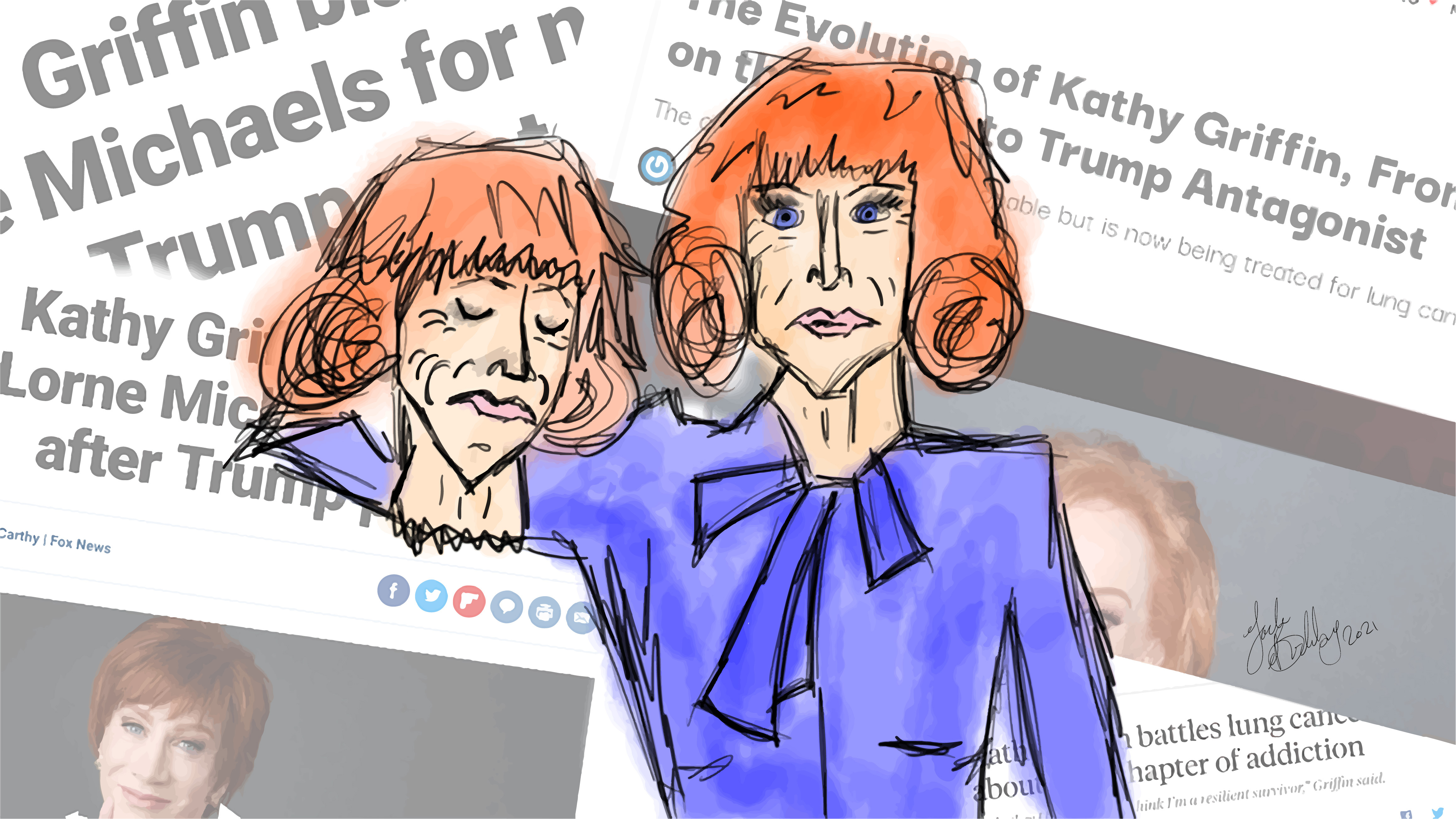Kathy Griffin announced this month that she has lung cancer. She also revealed how she overcame a drug addiction and a suicide attempt.
I wish Griffin all the best in her fight against the disease, however I feel compelled to address the news that this woman, after attempting to utilise progressive outrage to generate fame, felt that she had reached a point that life no longer felt worth living.
Finding yourself at the point of suicide is not always a culmination of tragic things that simply happen to you, but a result of things that are directly inflicted upon you by others. That’s something I can absolutely sympathise with. But it seems to me that Kathy Griffin is incapable of sympathising with others who have felt this pain equally, and perhaps worse than she did.
Griffin, if you aren’t familiar with her work, is a comedienne. A mildly successful comedienne who is, importantly, self-aware about her status as just mildly successful. Her reality show, “My Life on the D-List,” makes that clear – as did her very blatant attempt at courting further fame when she posed holding the severed head of then-President Donald Trump.
She very clearly desired the adoration of left-wing radicals, activists, and cool influencers who collectively became social kingmakers during the Trump administration – and very briefly, that’s what she got. But it soon became clear that she may have gone too far.
Perhaps there is a time in the not-too-distant future – or perhaps that time has come – that posing with the severed head of the former president would barely raise an eyebrow of anyone left of Jeb Bush. The fact is, however, that Griffin did it at a time when the shameless, dirty, partisan game-playing and smearing of Republicans and Trump was still in the process of becoming universally accepted by the political left.
So, she paid the price.
For somebody who experienced being canceled, lost work in television, and stopped getting calls from her agent, you might think she would have more sympathy for victims of cancel culture today. But instead, Griffin appears to be siding with the people that took her down, hoping that those who she continues to smear will ultimately find themselves worse off than her. Griffin strikes me as an inherently selfish, vain, and yet insecure woman.
She feels inadequate and superior simultaneously, and it’s perhaps this self-doubt that leads her not to address her own problems and do better, but to double down on her bullying and ensure that those she targets are more D-list than she is.
It doesn’t surprise me in the slightest that Griffin turned to pills and attempted suicide. Losing everything is hard.
What strikes me the most, however, is how she exhibits similar characteristics to the dangerous young extremists with whom I spent much of my youth.
In a book I wrote last year, Monster Of Their Own Making, I described the two kinds of extremists I encountered during my time in Britain’s biggest white nationalist political party. A “principled fanatic” was someone radicalised by real injustice. These were people driven to extremism as a result of neglect by the politicians, smears by the media, and attacks by left-wing radicals who stop at nothing to ensure compliance with their worldview.
A “joiner,” however, was someone who willingly became a part of a radical organization or movement in an effort to gain friendship, community, and perhaps even fame.
While I did not write about how these two kinds of extremists can be applied to left-wing radicals at the time, it has become evident to me recently that it applies in exactly the same way – and Griffin appears to perfectly fit the definition of “joiner.”
Kathy Griffin, a mildly successful comedienne looking to become a part of the ultra-progressive and mega-famous club of woke celebrities, willingly became part of a radical movement to sip from the same cup, only to accidentally take things one step too far.
She is not driven by a real sense of injustice, but her own vanity and paradoxically, her own insecurity.
Griffin’s tale on its own is tragic. I genuinely believe that, and I hope she beats cancer and feels more confident in herself as she recovers from her depression. However, this appears to me to be part of a wider problem – a hyperpartisan ideological class war fought by selfish warriors seeking an easy path to glory.
It’s a war that I’m sure any right-leaning readers of this website will say was started by the left, and perhaps that is true. But it doesn’t change the fact that it is happening, that at this point it is reciprocal, and that there are many anti-progressive big names who are just as self-interested, loud, and vain as Griffin.
The sad tale of Kathy Griffin is really a story of a poisonous political landscape that generates ample opportunity to profit from minimal work, surface-level analyses, and shock-jock antics, while making life miserable for those willing to address the root of the division.



